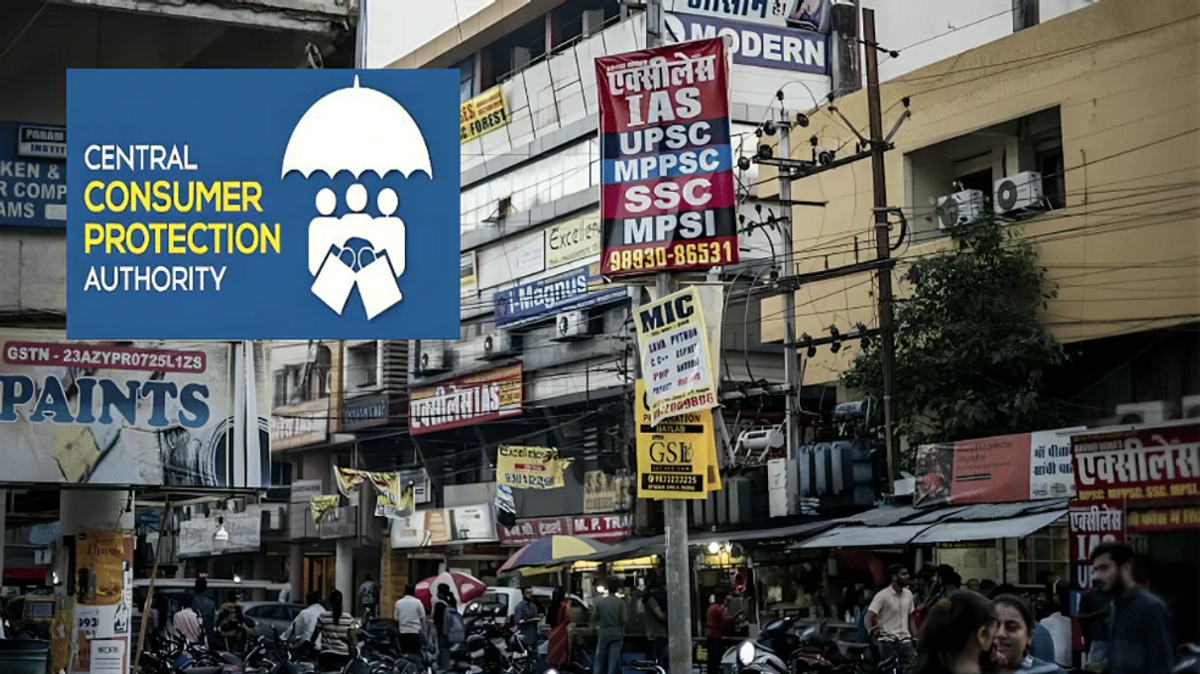 |
|
The Indian government has taken a decisive step towards safeguarding students and their families from deceptive marketing practices prevalent in the country's thriving coaching industry. The Central Consumer Protection Authority (CCPA) has introduced stringent guidelines to regulate advertisements by coaching institutes, effectively putting a stop to unrealistic promises about student success rates and guaranteed job placements. This move comes in response to a growing number of complaints received through the National Consumer Helpline, highlighting the widespread concern regarding misleading advertisements in the coaching sector.
These new guidelines, aptly named 'Prevention of Misleading Advertisement in Coaching Sector', explicitly prohibit coaching institutes from making false claims about their courses, faculty qualifications, fee structures, and, most importantly, guaranteed outcomes. The regulations categorically state that advertisements promising 100% selection rates or assured job security are strictly prohibited. This move aims to address a core issue that has plagued the coaching industry for years - the exploitation of vulnerable students and their families through exaggerated claims and unrealistic promises.
The CCPA has already begun taking proactive measures to enforce these guidelines. They have issued 54 notices and imposed penalties totalling Rs 54.60 lakh on various coaching centres found to be violating consumer protection regulations. This strong stance signals the government's commitment to ensuring a level playing field and holding coaching institutes accountable for their advertising practices. The guidelines also establish a clear definition of 'coaching', encompassing academic support, education, guidance, study programmes and tuition services, whilst explicitly excluding counselling, sports and creative activities.
One significant provision in the new guidelines addresses the misuse of success stories and testimonials. Coaching centres will now be required to obtain written consent from candidates before using their photographs or testimonials for promotional purposes. The CCPA Chief highlighted that many successful candidates, particularly those who have cleared prestigious examinations like the UPSC, often achieve success through self-study, seeking only interview guidance from coaching institutes. This practice of using testimonials without proper consent has often led to misleading portrayals of the true contribution of coaching centres to student success.
While the government emphasizes that it is not against coaching centres, it strongly believes that the quality of advertisements should not come at the expense of consumer rights. The guidelines mandate that institutes must accurately represent their services, facilities, resources and infrastructure. They must also clearly disclose whether their courses have received recognition from competent authorities such as the AICTE or UGC. This transparency requirement aims to empower students and their families to make informed decisions based on accurate and verifiable information.
The new framework supplements existing consumer protection legislation, with violations subject to penalties under the Consumer Protection Act. This means that coaching institutes must now prominently display disclaimers and provide transparent information about their courses and services. Failure to comply with these regulations will result in strict action being taken against the offending institutes. These regulations represent a significant step towards protecting students and their families from misleading marketing practices in India's burgeoning coaching industry, which is estimated to be worth billions of rupees annually.
The introduction of these guidelines marks a turning point in the Indian coaching sector. It signifies the government's proactive approach towards ensuring ethical and responsible advertising practices in the education sector. The emphasis on transparency, accountability, and consumer protection signals a positive shift in the way coaching institutes operate, ultimately benefiting students and promoting a healthier and more transparent learning environment.
Source: Centre takes aim at misleading coaching centre ads with new regulations
